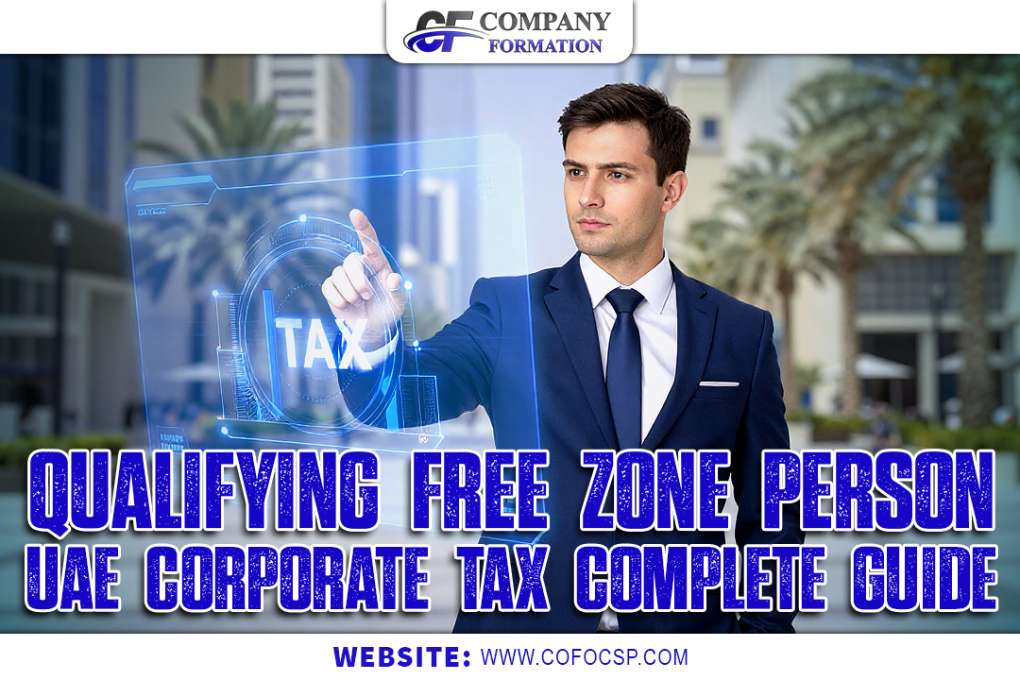How is Corporate Tax Different from Value-Added Tax in UAE?
The UAE’s tax system can feel like a maze for business owners, but understanding the difference between Corporate Tax and VAT is key to staying compliant and growing your business. Corporate Tax is a 9% levy on business profits above AED 375,000, introduced in 2023 to diversify the UAE’s economy. VAT, a 5% consumption tax applied since 2018, affects goods and services at every supply chain stage. While Corporate Tax targets your company’s earnings, VAT is paid by consumers and collected by businesses. Knowing these differences helps with tax compliance, business setup in UAE, and avoiding tax penalties. In this article, I’ll break down the UAE tax system, explain how these taxes work, and share practical tips to manage them, especially if you’re planning company formation in Dubai or seeking a UAE Golden Visa.
What is Corporate Tax in the UAE?
Corporate Tax in the UAE is a direct tax on the net profits of businesses, also known as corporate income tax or business profits tax. Introduced on June 1, 2023, it applies to taxable income from business activities conducted by companies, including those in business setup in Dubai or across the emirates. The UAE CT regime targets juridical persons (like LLCs) and certain natural persons running commercial or professional activities, as defined by the Corporate Tax Decree issued on December 9, 2022.
Unlike other taxes, Corporate Tax focuses on profit-based tax, meaning it’s calculated after deducting allowable expenses like salaries or rent. For example, if your business earns AED 500,000 in net profits, you’ll only pay tax on the amount above AED 375,000. This makes it different from taxes in other countries, where rates can be higher. The goal? To boost economic diversification by reducing reliance on oil and funding public spending through revenue collection.
Corporate Tax Rates and Exemptions
The Corporate Tax rates are straightforward:
- 0% on taxable income up to AED 375,000.
- 9% on net profits above AED 375,000.
- Multinational enterprises (MNEs) under BEPS 2.0 Pillar 2 follow OECD guidelines for profit-sharing rules.
Some businesses enjoy Corporate Tax exemptions:
- Free zone businesses meeting specific criteria (e.g., no mainland transactions).
- Government entities and public benefit entities.
- Intra-group transactions, dividends from UAE or foreign companies, and group re-organization profits.
For instance, if you’re planning company formation in Dubai in a free zone, you might avoid Corporate Tax, but you’ll need to comply with transfer pricing rules for transactions with related parties. This keeps your business competitiveness intact while ensuring tax compliance.
What is Value-Added Tax (VAT) in the UAE?
Definition and Scope
VAT in UAE, introduced on January 1, 2018, is a consumption tax applied at a 5% VAT rate on most taxable supplies of goods and services. Unlike Corporate Tax, which targets business earnings, VAT is paid by the end consumer but collected by businesses at each supply chain stage. For example, if you buy a phone for AED 1,000 plus AED 50 VAT, the retailer remits that AED 50 to the Federal Tax Authority.
VAT applies to over 150 countries, making it a global standard. In the UAE, it supports economic diversification by adding revenue sources to the UAE economy. Businesses involved in business setup in UAE must understand VAT legislation to avoid tax penalties.
VAT Registration and Exemptions
Businesses must register for VAT registration UAE if their taxable supplies and imports exceed the mandatory registration threshold of AED 375,000 over the past 12 months or are expected to exceed it in the next 30 days. If your taxable supplies or taxable expenses are between AED 187,500 and AED 375,000, you can opt for voluntary registration threshold.
Some sectors are VAT-exempt:
- Financial services (as specified in VAT legislation).
- Residential properties, bare land, and local passenger transport.
For example, a business setup consultant in Dubai helping with company formation in Dubai might guide you on whether VAT registration is mandatory for your retail business. VAT returns must be filed quarterly, and transaction records kept for five years to ensure UAE VAT compliance.
How Do Corporate Tax and VAT Differ in the UAE?
Tax Base and Incidence
The core difference between Corporate Tax and VAT lies in their tax base. Corporate Tax is a profit-based tax, calculated on your net profit after allowable expenses. For instance, a tech startup in Dubai with AED 400,000 in net profits pays 9% on AED 25,000 (AED 2,250). VAT, however, is a consumption-based tax, added to the price of goods or services, like a 5% charge on a AED 100 meal (AED 5).
Tax incidence also varies. Corporate Tax is borne by the business, impacting profit margins and potentially shareholders or employees. VAT is ultimately paid by the end consumer, with businesses acting as collectors for the Federal Tax Authority. This makes VAT neutral for businesses, as they reclaim VAT recovery on purchases.
Tax Collection and Filing
VAT collection happens at each supply chain stage. Businesses charge VAT on sales, deduct VAT paid on purchases, and remit the difference to the Federal Tax Authority quarterly. For example, a retailer buys goods for AED 100 + AED 5 VAT and sells for AED 150 + AED 7.50 VAT, remitting AED 2.50.
Corporate Tax collection is simpler, with businesses filing an annual tax return nine months after their financial year ends. If your financial year 2023 starts on July 1, you’ll file by March 31, 2024, based on taxable income. Transfer pricing rules apply to transactions with related parties, ensuring fair profit allocation.
Impact on Business Operations
VAT impacts pricing policy, as businesses include it in the final price, potentially affecting consumer spending. For instance, high VAT could raise prices, reducing demand for non-essential goods. Corporate Tax doesn’t directly affect pricing but influences cost management and investment decisions. A high Corporate Tax rate might discourage lower investments in high-tax jurisdictions.
For businesses pursuing business setup in Dubai, understanding these impacts is crucial. VAT requires robust tax documentation systems, while Corporate Tax demands accurate financial records to track allowable expenses and tax obligations.
How Do These Taxes Affect Your Business Setup in UAE?
Corporate Tax for Startups and SMEs
Starting a business in the UAE, especially company formation in Dubai, means planning for Corporate Tax. Startups and SMEs benefit from the 0% tax rate on taxable income up to AED 375,000, making the UAE a business-friendly tax environment. For example, a small consultancy with AED 300,000 in net profits pays no Corporate Tax, boosting business competitiveness.
However, Corporate Tax compliance involves tracking business earnings and allowable expenses. Transfer pricing rules also apply if your startup deals with foreign branches or related parties. A business setup consultant in Dubai can help navigate these rules, especially for free zone businesses seeking Corporate Tax exemptions.
VAT Compliance for New Businesses
VAT compliance for new businesses starts with understanding taxable supplies. If your business setup in UAE involves retail or services exceeding AED 375,000 in taxable supplies, mandatory registration threshold applies. For smaller businesses, voluntary registration at AED 187,500 can allow VAT recovery on purchases, improving cash flow.
For instance, a café in Dubai with AED 400,000 in annual sales must register for VAT, file VAT returns quarterly, and maintain transaction records. Using PRO services can simplify this process, ensuring timely VAT filing and avoiding tax fines.
How Can You Stay Compliant with UAE Tax Laws?
Record-Keeping and Filing Requirements
Tax compliance requires meticulous record-keeping. For VAT, keep transaction records (invoices, receipts) for five years, detailing taxable supplies and VAT recovery. For Corporate Tax, maintain financial records of business earnings, allowable expenses, and taxable income to support your annual tax return.
For example, a tech firm in Dubai must track software development costs as allowable expenses for Corporate Tax and log client invoices for VAT returns. Missing records can lead to tax penalties or legal action, so use digital tools or PRO services to stay organized.
Leveraging PRO Services for Compliance
PRO services are a game-changer for business setup in UAE. They handle tax registration, VAT filing, and Corporate Tax compliance, saving you time and reducing errors. For instance, when I helped a friend with their business setup in Dubai, PRO services streamlined their VAT registration UAE and ensured compliance with UAE tax laws. This is especially helpful for UAE Golden Visa applicants managing multiple businesses.
What Are the Latest 2025 Tax Updates in the UAE?
Corporate Tax Updates
As of 2025, the UAE CT regime continues to evolve. Recent updates clarify transfer pricing rules for foreign branches and related parties, ensuring fair profit allocation. Free zone businesses now face stricter criteria for Corporate Tax exemptions, requiring no mainland transactions. Natural persons running business activities may face Corporate Tax based on upcoming Cabinet Decisions, addressing a gap in competitor content.
For example, a business setup consultant in Dubai can guide you on these updates, ensuring your company formation in Dubai aligns with tax incentives and OECD guidelines.
VAT Updates
VAT legislation in 2025 emphasizes digital tax compliance. Businesses must adopt e-invoicing for VAT returns, aligning with global trends like Saudi Arabia’s system. The mandatory registration threshold (AED 375,000) and voluntary registration threshold (AED 187,500) remain unchanged, but taxable expenses now include clearer guidelines for digital services.
For instance, a retail business must update its tax documentation to comply with e-invoicing, avoiding tax fines. These updates fill a content gap, as competitors didn’t address 2025-specific changes.
Conclusion: Navigating UAE Taxes for Business Success
Understanding the difference between Corporate Tax and VAT in UAE is crucial for business setup in Dubai and thriving in the UAE tax system. Corporate Tax, a profit-based tax, targets your net profits at 9% above AED 375,000, while VAT, a consumption tax, adds 5% to goods and services, collected for the Federal Tax Authority. By mastering tax compliance, leveraging PRO services, and staying updated on 2025 changes, you can avoid tax fines and boost your business strategy. Whether you’re pursuing company formation in Dubai or a UAE Golden Visa, these insights help you navigate the tax landscape with confidence, ensuring business competitiveness and sustainable economy growth.







